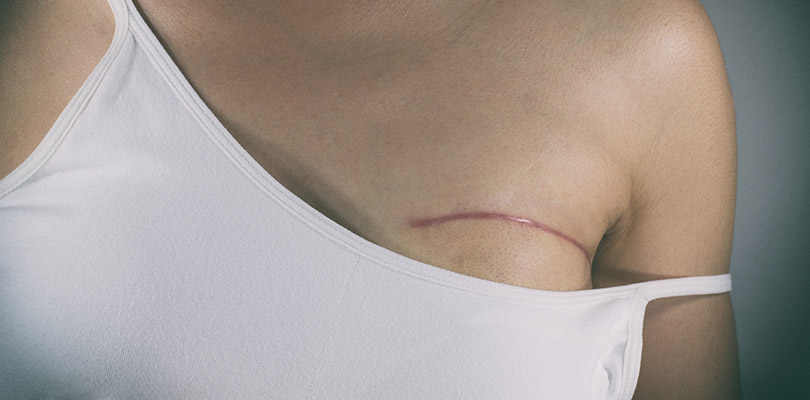Radiation vs Chemo: Which Cancer Treatment Is Better?
Cancer is one of the worst curses inflicted upon humanity. As soon as someone is diagnosed with cancer, their life turns upside down. Fortunately, if diagnosed and treated at an early stage, it is possible to achieve full remission in many cases. There are different treatments based on the type, location and stage of cancer, as well as the patient’s overall health status. After diagnosis, a team of experts collaborates to develop an individualized, safe and effective treatment plan. These treatment plans often include radiation therapy or chemotherapy. But, when it comes to radiation vs chemotherapy, what are the similarities and differences?
Chemotherapy and radiation are two of the most common types of cancer treatments. If you are diagnosed with cancer, your oncologist may prescribe one of these options singularly, or in combination with one another, or in combination with other forms of treatment. Knowing the basics of what radiation and chemotherapy are, how they differ from each other and which one is better under what circumstances, will help you in your cancer treatment journey.
The Basics of Cancer
Since you were a fetus, your body has grown through the process of cell division. If for some reason, cells in your body start to reproduce in an uncontrolled manner, cancer can develop. Cancer cells can grow very fast and they also have the potential to spread to other parts of your body.
What Is Chemotherapy?
Chemotherapy is a drug treatment that involves the use of powerful chemicals to kill rapidly growing cancer cells and prevent them from growing any further. Doctors rely on different types of chemotherapy drugs to treat cancer. Chemotherapy drugs can be administered in several ways, including:
- IV infusion
- Oral pills
- Shots
- Gels or creams
In some cases, chemotherapy can be applied to one area of the body affected by cancer directly, as is the case for cancers in the abdomen (intraperitoneal chemotherapy), or those in the central nervous system (intrathecal chemotherapy), as well as others.
In certain circumstances, chemotherapy may be given directly to the cancer, or where the cancer was prior to surgical removal. An example of this is the use of chemotherapy wafers that are placed near the cancerous tumor during surgery. Over time, these wafers break down and release chemotherapy into the area. Another example is when chemotherapy drugs are injected into an artery or vein that feeds a tumor directly.
What Is Radiation Therapy?
Radiation therapy treats cancer by using high-energy beams to destroy cancer cells. Usually x-ray radiation is used for treating cancer, but other forms of energy can also be used. The radiation attacks the DNA of the cancer cells, which halts their growth and prevents them from uncontrolled cell division. This form of treatment is also used to shrink tumors in the early stages of cancer. Certain drugs known as radiosensitizers are used to increase the effectiveness of radiation.
Radiation therapy is conducted in two ways. The more common way is to use a machine from outside your body (external radiation). However, in some cases, the radiation source is placed in your body for treatment (internal radiation).
One way to eliminate cancer from the breast is to undergo some type of breast cancer surgery. The two main types are lumpectomy and mastectomy.
When to Use Chemotherapy
Chemotherapy can be used as the primary mode of cancer treatment if there are existing chemotherapeutic agents available for your specific type of cancer. If an agent is unavailable, your oncologist may opt for other treatment options.
Your oncologist may recommend chemotherapy after undergoing surgical resection of a tumor to remove any cancer cells that may remain (adjuvant therapy). In other cases, your doctor may prefer to administer chemotherapy prior to surgical resection to shrink your tumor to make removal easier (neoadjuvant therapy).
If your cancer has metastasized and has spread beyond the site of origin, chemotherapy is not curative. Rather, applying chemotherapy at this point can help to shrink the tumor, diminish your symptoms and lengthen the amount of time you have left. This type of chemotherapy is known as palliative chemotherapy.
Chemotherapy can also be applied before carrying out a bone marrow transplant, or for treating immune system disorders such as lupus.
When to Use Radiation
Similar to chemotherapy, radiation can also be applied as a standalone treatment. It can also be used in conjunction with chemotherapy before surgery to shrink the tumor (neoadjuvant therapy), or after surgery to destroy any remaining cancer cells (adjuvant therapy).
Typically, doctors prefer radiation therapy prior to surgery to shrink the size of the tumor so that it can be removed more easily.
In some cases, palliative radiation is used to ease symptoms and improve quality of life in terminal cancer patients.
Side Effects of Chemotherapy
Besides the fast-growing cancer cells, chemotherapy drugs also attack normal cells that grow quickly. The cells that are most vulnerable to chemotherapy are:
- Bone marrow
- Hair follicles
- Cells in the digestive and reproductive system
Some drugs can affect the cells in the heart, lungs, bladder, kidney as well as the nervous system. Side effects of chemotherapy vary among individuals and may include:
- Hair loss
- Fatigue
- Infection
- Nausea, loss of appetite, diarrhea
- Mouth sores
- Numbness, pain and tingling sensation in muscles
- Dry skin
- Change of nail color
Side Effects of Radiation
The side effects of radiation also vary from person to person depending on cancer type, extent of the cancer and overall health conditions. Some of the side effects disappear within a month of discontinuation of treatment, while others take longer to subside.
After starting radiation, your skin might get irritated, blistered, swollen or look sunburned. The affected area may become dry, itchy and may start to peel off. These symptoms are called radiation dermatitis. As soon as you see these symptoms, you should consult your doctor. They may suggest drugs or other treatments to minimize your discomfort.
Besides skin conditions, other side effects of radiation therapy include:
- Hair loss
- Low blood counts
- Hearing impairment
- Nausea
- Seizures
- Memory loss
- Heart complications
In Conclusion
Although the list of side effects may look scary, chemotherapy and radiation are both quite effective in fighting cancer. You must inform your doctor regarding prior conditions such as infection and pregnancy as chemotherapy and radiation both diminish your immune system function and can cause harm to a fetus. It’s very hard to tell which cancer treatment is superior because they are applied under different circumstances. Knowing about these procedures, as well as the associated side effects, will help you make an informed decision about your cancer treatment program.







